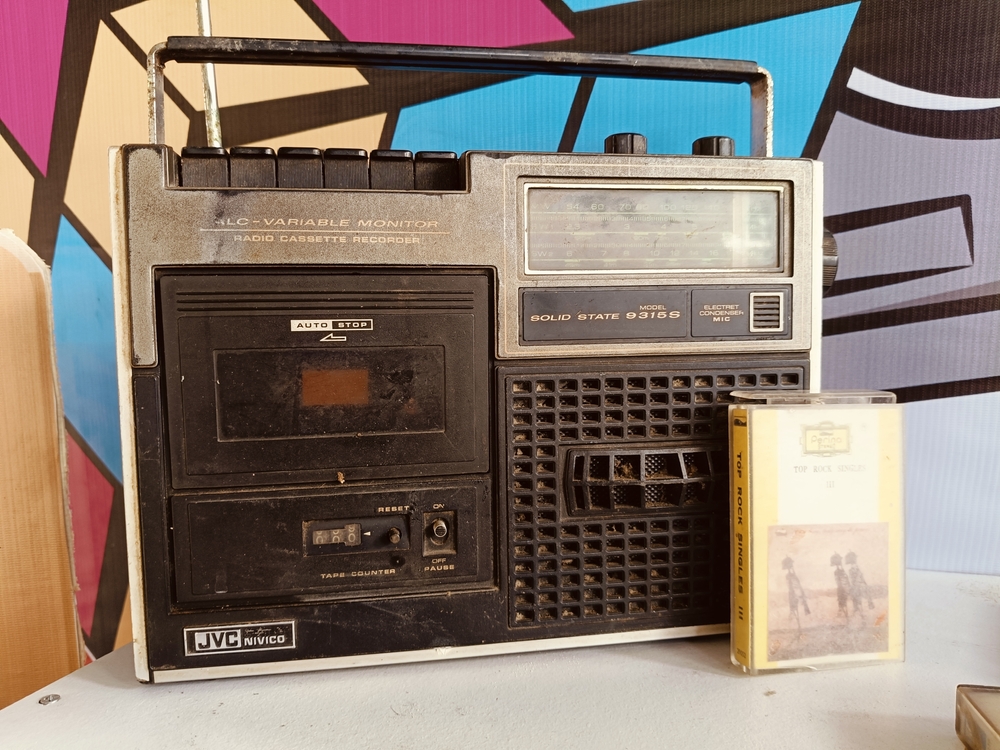Let’s be honest: Boomers love their clutter, both physical and mental. From obsolete technology to outdated social rules, they hold onto things that make younger generations scratch their heads. But it’s not just nostalgia—there’s a psychology behind why they can’t let go, and it reveals a lot about how they see the world.
Here are 15 sharp, unexpected reasons Boomers refuse to let go of things that have lost their relevance.
1. They See Letting Go As A Loss Of Identity

For many Boomers, the things they own—like their DVD collection or fine china—are tied to who they believe they are. Getting rid of them feels like erasing a part of themselves, not just decluttering. It’s an emotional anchor they’re not ready to lose.
As noted by The Conscious Organizer, many Baby Boomers see their possessions as deeply tied to their identity and life story. For them, letting go of items like fine china or a DVD collection feels like rejecting the meaningful experiences and memories those items represent, essentially a rejection of their own lived history.
2. They Believe Something’s Value Is Measured By Longevity

If it’s lasted decades, it must be valuable, right? Boomers tend to see age as proof of worth, whether it’s a faded recliner or an old-fashioned moral code. They equate “it’s always been this way” with “it should stay this way.”
This logic makes it almost impossible to let go of anything, even when it’s collecting dust. For them, “old” doesn’t mean outdated; it means respected.
3. They’re Wired To Hoard As A Survival Instinct

Many Boomers grew up in households shaped by war, rationing, or economic instability. Keeping things “just in case” is a survival reflex, not just sentimentality. Research published in the journal Sustainability explains that hoarding behavior often stems from an overestimation of future need and a fear of being unprepared, which can be traced back to experiences of environmental unpredictability and insecurity in childhood.
It’s not about the object itself—it’s about control. Holding on feels safer than the uncertainty of letting go.
4. They Confuse Sentiment With Functionality

A broken clock that hasn’t worked in 15 years? It’s not about the time—it’s about the memory of who gave it to them. As confirmed by research published in Current Opinion in Psychology, older adults, including baby boomers, often develop strong emotional attachments to objects because these items serve as cues to reminisce about meaningful memories, making it difficult for them to separate sentimental value from practical use.
This emotional attachment creates clutter that feels sacred, even if it’s useless. For them, discarding an object feels like discarding a memory.
5. They See Change As A Threat

To many Boomers, the newest version of something isn’t exciting—it’s an attack on what they know. In a detailed analysis of generational differences in workplace change readiness, Myrthe Weusthof’s 2023 study found that Baby Boomers exhibit the strongest resistance to change compared to younger generations, largely due to lower openness to change and a preference for stability.
This resistance makes them cling to the old, even when it’s holding them back. It’s a quiet fear disguised as loyalty.
6. They Mistake Nostalgia For Relevance

Just because a certain product or idea once shaped their lives doesn’t mean it’s still useful today. Boomers, however, often treat nostalgia like it’s proof of value. If it mattered once, it *must* matter forever.
That’s why they defend outdated traditions and obsolete tech like their life depends on it. For them, the past isn’t just history—it’s home.
7. They Prefer Simple “Old-School” Things

Many Boomers see modern solutions—like apps, digital payments, or new communication styles—as needlessly complicated and prefer simpler, traditional methods. This preference is often rooted in generational nostalgia and a comfort with familiar systems. According to a detailed analysis by Market Realist, Boomers maintain a strong affinity for legacy technologies such as cable TV and landlines because they value their straightforwardness and reliability over newer, more complex options.
It’s less about practicality and more about pride. They’d rather struggle with a fax machine than adapt to the cloud.
8. They Can’t Admit They Don’t Understand The New Stuff

Clinging to what’s familiar is a subtle way of avoiding the vulnerability of learning something new. They might scoff at Venmo or smart home tech, but underneath, there’s often a quiet fear of being left behind. It’s easier to mock progress than admit they’re confused.
This refusal to engage keeps them stuck—and reinforces the generational gap.
9. They Pride Themselves On Fixing Old Things

Boomers often pride themselves on knowing how to fix things, use tools, or navigate life without GPS. They treat these abilities as badges of honor, even when those skills are no longer relevant. Letting go of old ways feels like letting go of proof they’re competent.
For them, it’s not about the task—it’s about identity. And they’ll cling to that narrative, even if it’s outdated.
10. They Fear Their Legacy Will Be Forgotten

To a Boomer, passing down heirlooms or sharing old traditions feels like securing their place in family history. If they let go of that, they worry their stories and impact will fade. The stuff becomes a stand-in for being remembered.
This fear of fading into irrelevance makes decluttering feel like erasure. They want to leave a mark—and they think their stuff is that mark.
11. They Were Taught That Waste Is A Sin

Boomers grew up in a world where waste was morally wrong, whether from the Great Depression mindset or post-war rationing culture. Throwing something out, even if it’s broken, feels like a moral failure, not just a practical decision.
This guilt makes it almost impossible to part with things, even when they’re useless. It’s a deeply ingrained value that doesn’t always make sense today.
12. They Romanticize “The Good Old Days”

Boomers often filter the past through rose-colored glasses, turning flawed systems and outdated objects into symbols of a “better” time. They forget the struggles, the limitations, and the exclusions, focusing only on the warm, fuzzy nostalgia.
This selective memory fuels their attachment to the useless. Letting go would mean admitting the past wasn’t perfect.
13. They Are Stuck In Sentimentality

To Boomers, an old collection of magazines or a dusty lamp isn’t just stuff—it’s *history*. They overvalue the sentimental at the expense of practicality, turning their homes into museums of the past.
This emotional clutter often traps them in a cycle of accumulation. They can’t throw it out—because to them, it’s not junk, it’s a legacy.
14. They Don’t Want To Be Told What’s Obsolete

Nothing triggers a Boomer faster than a younger person telling them, “You don’t need that anymore.” It feels condescending, like they’re being sidelined from the world they helped build. So they hold on—even tighter.
This defiance is as much about independence as it is about the item itself. It’s their way of saying: I decide what matters, not you.
15. They Equate Letting Go With Giving Up

For many Boomers, holding on feels like a form of resilience. Letting go of something they’ve had for years feels like admitting defeat, like they’re surrendering to time itself. It’s not just about the object—it’s about fighting against the passage of time.
Clinging to the useless is, in a strange way, their way of staying relevant. It’s not logical—but it’s deeply human.
Natasha is a seasoned lifestyle journalist and editor based in New York City. Originally from Sydney, during a stellar two-decade career, she has reported on the latest lifestyle news and trends for major media brands including Elle and Grazia.


